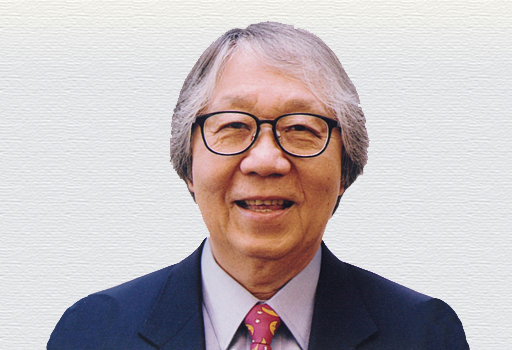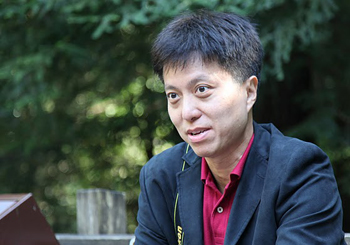Young Children’s Voices in Mathematical Problem Solving
Contributed by Dr Ho Siew Yin and Sng Wei Qin Abbie, from NTUC First Campus, for SingTeach Virtual […]
Read More
Why do we study Literature? Educators and past and present students of Literature tell us what the subject means to them and how it can continue to enrich the lives of students in the 21st century.
Literature seems to be a subject that both befuddles and captivates students. There are usually no “right” or “best” answers. But at the same time, some students credit it for inspiring them and opening up their minds to new worlds and perspectives.
We ask several educators and students of Literature, including Professor Tommy Koh, Singapore’s Ambassador-At-Large, to share with us their personal experiences with Literature and why it remains relevant to students to this day.
 One of the subjects I studied for my O-Level examinations in 1955 was English Literature. Fifty-nine years later, I consider the study of Literature one of the best investments I have made. Why?
One of the subjects I studied for my O-Level examinations in 1955 was English Literature. Fifty-nine years later, I consider the study of Literature one of the best investments I have made. Why?
First, through Literature, I acquired a love of books and the joy of reading. Reading is a joyful, educational and liberating experience. You are transported from your circumstances into another world, another time and another civilization. Reading is the key that unlocks the door to the treasury of the world.
Second, reading literature helps you to think clearly, write clearly and speak clearly. Clarity of thought and expression is a virtue which should be cultivated.
Third, reading literature gives one a better understanding of human nature and the complexity of the human condition. It makes one less judgemental and more sympathetic. Literature can also be more insightful than non-fiction. For example, I find Aravind Adiga’s novel, The White Tiger, very informative about the dark side of contemporary India. In the same way, I find the Chinese novelist Yu Hua’s book, China in Ten Words, a brilliant commentary on contemporary China.
Reading is a joyful, educational and liberating experience.
– Professor Tommy Koh, Ambassador-At-Large, Ministry of Foreign Affairs
 Whenever I teach Literature to a new class, I usually start by asking them why we study Literature. The answers from students can range from the comically obvious to the vaguely profound: from “because it is on the timetable” to “it teaches us about the human condition”.
Whenever I teach Literature to a new class, I usually start by asking them why we study Literature. The answers from students can range from the comically obvious to the vaguely profound: from “because it is on the timetable” to “it teaches us about the human condition”.
Often, there are the utilitarian values placed on Literature. It helps develop students’ critical thinking skills in the quest for the ubiquitous 21st century competencies. Linguistically, it gives students the opportunity to analyse and appreciate good language use by highly regarded wordsmiths. It helps students gain a better understanding of the societies which produce the literature to foster greater empathy for others.
To me, above all that, Literature education is about teaching young people to appreciate what it means to be human. It is about what it means to care for someone or something and what it means if we lose it. It is asking what is important to us as a person as we relate to the world around us. Through the novel, the poem, the short story, the dramatic text, we explore with students different contexts which all deal with what it means to live and to live well.
To me, above all that, Literature education is about teaching young people to appreciate what it means to be human.
– Jeffrey Low, Bedok View Secondary School
Many students who struggle with Literature often ask these questions: “Why do we need to study Literature? How is it important for us?”
Has literature finally fallen out of favour since the dawn of the 21st century? After millennia of growing, thriving and adapting, will it finally die out, succumbing to the new interests of the current generation?
When I was first introduced to Literature in Secondary 1, I had problems engaging with the subject. My grades were either borderline passes or fails. But as time went by, I learned to appreciate what I read and respond appropriately to different works. My interest in the subject has grown so much that I am now taking Literature as an O-Level subject on my own.
Although many people today may not have as much interest in reading literature, preferring to engage in new forms of entertainment such as computer games, I believe that literature remains relevant to all of us. It teaches us about life by exposing us to the lives of different people through their stories, and from these vicarious experiences, we learn important lessons and values.
Literature teaches us humanity – to be sensitive and empathetic towards others. It also provides us an outlet for our thoughts and emotions and imagination. All these can help address the problems that our world is facing now, such as increasing intolerance and stress in life. Above all, Literature teaches us language and the power of communication, a skill we cannot do without in the 21st century.
Literature teaches us humanity – to be sensitive and empathetic towards others.
– Davyd Tan, Secondary 4 student
To me, Literature is about good writing. Literature education teaches one to appreciate various forms of writing and hopefully, trains one to write well. In the 21st century, forms of communication have multiplied, making the written word all the more important. After all, we all message, email, blog, post on social media in our daily lives. Hence, the ability to write well and also to appreciate good writing by others can only enhance our experiences.
My father was a journalist and this has probably shaped my attitude towards the art of writing. Naturally, I am very happy to see that my son enjoys reading and writing from a young age.
He is studying Literature on his own as the school timetable was unable to accommodate the subject combination that he wanted, but he could approach the Literature teacher outside of curriculum time for notes and assignments, and sit for the school examinations.
I am glad that he has the chance to read Literature as I believe that it is a subject that opens the mind and the heart, which is so relevant to the global society of today.
To me, Literature is about good writing.
– Deborah Tan, Davyd’s mother